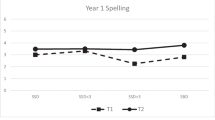Abstract
This paper deals with two forms of education—Platonic and Socratic. The former educates childhood to transform it into what it ought to be. The latter does not form childhood, but makes education childlike. To unfold the philosophical and pedagogical dimensions of this opposition, the first part of the paper highlights the way in which philosophy is presented indirectly in some of Plato’s dialogues, beginning with a characterisation that Socrates makes of himself in the dialogue Phaedrus. The second part details Plato’s condemnation of writing in the Phaedrus, and draws on the critique by Jacques Derrida and Gilles Deleuze to establish what is at stake in this condemnation. In the third part, the pedagogical and political implications of this condemnation are reviewed, and Plato is placed in a surprising position in relation to his own teacher, Socrates. Finally, through a comparison between childhood and philosophy, the educational value of putting childhood and philosophy together is questioned. Through a number of questions, the paper ends problematising the pedagogical, political and philosophical value of placing the practice of philosophy in the realm of childhood citizenship education. It also recovers the value of philosophy—as a form of questioning and unlearning what we know and affirming the value of not knowing—in a childlike education.
Similar content being viewed by others
Notes
Poison, drug, medicine, remedy (Lidell and Scott 1966).
Becoming-child is a Deleuzian concept. It is a form of non-chronological time, a source of resistance to the state and dominant political practices. I have developed this idea further in my paper: Kohan (2011b). Childhood, Education and Philosophy: Notes on Deterritorialisation. Journal of Philosophy of Education (45), 2011, 343 ff.
City, State, City-State.
Inspired by Derrida and Deleuze, here I understand difference in itself, i.e., difference not in relation to anything else “different from…” but as such, difference as difference. For Derrida’s way of raising the problem, see infra n. 7.
See, for example, J. Derrida (2000), 335.
G. Deleuze (1995), 295 ff.
Ibid., 303.
Derrida affirms that phármakon is a reservation of difference, what “produces” difference in oppositions and in any other difference, something like what makes “difference” differ from “the différance of différence”. On the concept of différance,cf Derrida (1968). La différance, published in the Bulletin de la société française de philosophie (juillet-septembre 1968) and in Théorie d’ensemble (coll. Tel Quel), Ed. du Seuil,.
The expression Deleuze critique of thinking in Western Philosophy, at Chapter 3 of Deleuze, G. (1968).
References
Deleuze, G. (1968). Différence et Répétition. Paris: PUF.
Deleuze, G. (1995). Platon te le simulacre. In: Logique du sens. Paris: Les Éditions de Minuit.
Derrida, J. (1980). La carte postale. París: Flammarion.
Derrida, J. (1997). De l’hospitalité. Anne Dufourmantelle invite Jacques Derrida à répondre. Paris: Calmann-Lévy.
Derrida, J. (2000). La pharmacie de Platon. In L. Brisson (Ed.), Platon, Phèdre, Traduction (pp. 255–403). Paris: GF- Flammarion.
Kohan, W. (2011a) Sócrates & a educação. O enigma da filosofia. [Socrates & Education. The Enigma of Philosophy]. Belo Horizonte: Autêntica.
Kohan, W. (2011b). Childhood, education and philosophy: Notes on deterritorialisation. Journal of Philosophy of Education, 45, 339–357.
Lidell, H., & Scott, R. (1966). A Greek English lexicon. Oxford: Clarendon Press.
Plato. (1989). The Dialogues of Plato. (trans: B. Jowett) New York: Oxford University Press.
Rancière, J. (1987). Le Maître Ignorant. Paris: Fayard.
Author information
Authors and Affiliations
Corresponding author
Rights and permissions
About this article
Cite this article
Kohan, W.O. Plato and Socrates: From an Educator of Childhood to a Childlike Educator?. Stud Philos Educ 32, 313–325 (2013). https://doi.org/10.1007/s11217-012-9348-x
Published:
Issue Date:
DOI: https://doi.org/10.1007/s11217-012-9348-x




